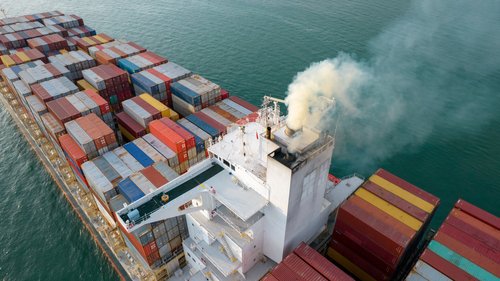Belgium, (Brussels Morning Newspaper) The EU agreed on new rules for shipping emissions, which are to be added to the bloc’s carbon market. New rules will force shipping companies to pay for CO2 emissions and increase pressure on the sector to develop technologies with a lower carbon footprint, according to a Reuters report on Wednesday.
Under the carbon market system currently in place, the EU does not tax the shipping sector for emissions, unlike power plants and factories.
New rules for the shipping sector are to come into effect in 2024 when companies will have to start buying carbon permits from the EU for 40% of their emissions. This will increase to 70% in 2025 and further to 100% in 2026.
MEPs and EU member state negotiators struck the deal on Tuesday, noting that the bloc will tax emissions of carbon dioxide as well as nitrogen dioxide and methane.
MEP Peter Liese expressed the belief that the move “will not only help the climate but also improve air pollution in cities close to rivers and the coast.”
Besides emissions in the EU, the bloc plans to tax 50% of emissions from international waters for voyages that start or end in the EU.
Positive effects
According to Liese, the move will encourage ship operators and owners to develop less polluting shipping technologies and move towards less polluting fuels.
He noted that MEPs and negotiators agreed to set aside a portion of revenues from the new taxation system to finance projects aimed at developing green technologies for maritime transport.
Industry groups pointed to a lack of commercially available technologies that could make the shipping sector greener, stressing that the lack of options makes it difficult to decarbonize the sector.
EU’s new rules for the shipping sector are part of the bloc’s plan to redesign the carbon tax system aimed at strengthening the green push. The bloc is aiming to lower its greenhouse gas emissions by 55% by 2030 compared to 1990 levels, up from the previous target of 50%.
According to plans, EU negotiators will look to strike an agreement on remaining proposals to redesign the carbon market by mid-December, after which EU bodies are to adopt new rules.




